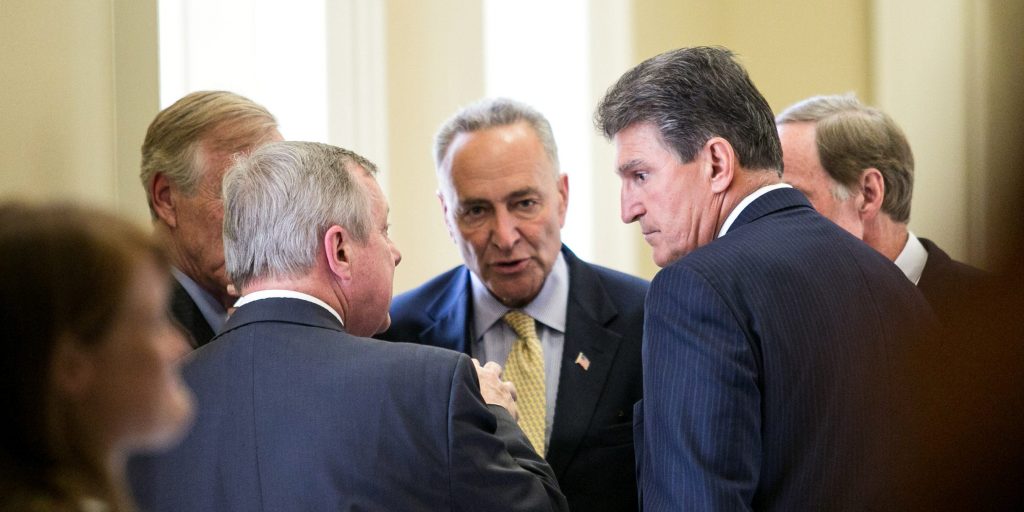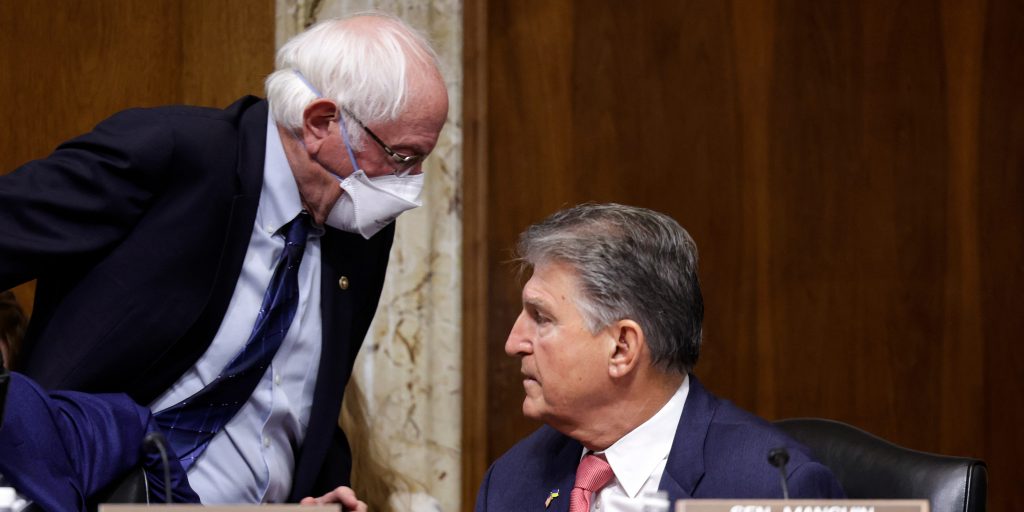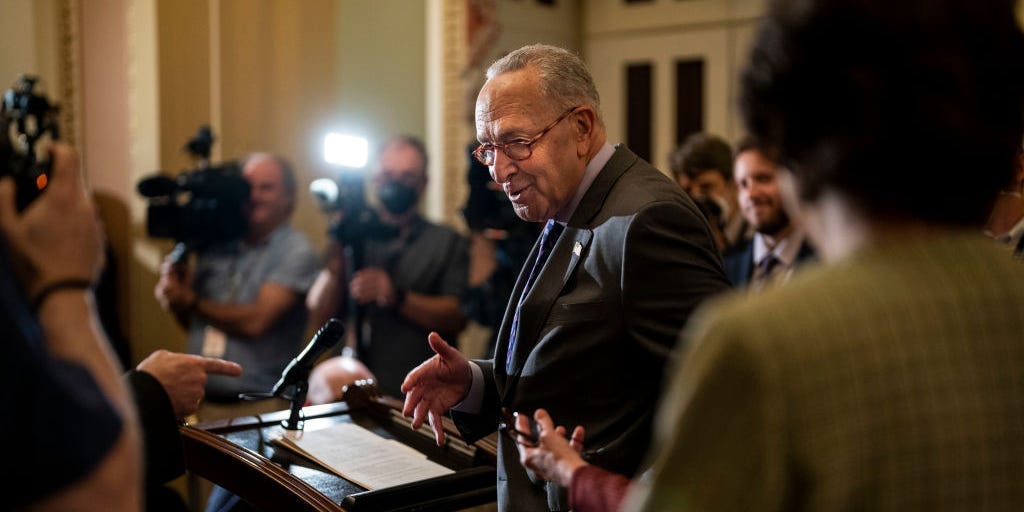- Democrats are taking a Manchin deal that's a huge step down from their initial $3.5 trillion plan.
- Some are laying responsibility on their leaders for failing to secure most of Biden's agenda.
- "There's plenty of blame to go around here, no doubt about it," a former Senate Democratic aide said.
It's been said that victory has 100 fathers and defeat is an orphan. But when it comes to the crumbling of President Joe Biden's economic agenda, there seems to be a lot of blame to go around.
Democrats are accepting the skinny deal that Sen. Joe Manchin of West Virginia put on the table last week, hoping to finally lock in a win after a year of tumultuous negotiations with the mercurial holdout. Their initial $3.5 trillion blueprint designed to strengthen the American safety-net with features like monthly checks to parents and universal pre-K has been whittled down to a healthcare bill with a potential $40 billion price tag.
That's a huge step down from the party's initial, New Deal-sized vision to reconfigure the American economy. The current measure would extend extra financial assistance to purchase health insurance under the Affordable Care Act for another two years, paired with empowering the federal government to negotiate the prices of some prescription drugs.
To sidestep GOP opposition using the budget reconciliation process, every Democrat in both the House and Senate needed to back the social and climate bill to pass it on party-lines. But they always had a handful of votes to spare in the lower chamber and none in the Senate due to staunch resistance from Republicans. Now some Democrats are starting to pin blame on their leaders for the failure of their agenda.
"There's plenty of blame to go around here, no doubt about it," Jim Manley, a former senior Democratic aide to Sen. Harry Reid of Nevada, said in an interview. "That includes the leadership of both the House and the Senate."
Schumer tried to 'steamroll' Manchin and other centrists

Some believe Senate Majority Leader Chuck Schumer shoulders some responsibility since he privately knew Manchin's red lines for an economic spending bill and spent months trying to prod him into dropping those demands. A document where Manchin outlined his demands — first reported by Politico last September — noted that Schumer would "try to dissuade Joe on many of these," including a $1.75 trillion limit on new spending.
"There were some number of Democrats who thought that they could steamroll the moderates in the House and the Senate," John LaBombard, a former Democratic aide to Sinema, said in an interview. "That if they just gave enough cable TV appearances, tweeted enough, and protested enough that Senator Manchin, Senator Sinema, some of the Blue Dogs in the House and others would reverse themselves on sincerely-held policy positions. Obviously, that didn't happen."
"It's certain there were mistakes made in this process by our party leadership," he added.
Negotiations that stretched through last fall ended with Manchin putting a dagger into the $2 trillion House-approved Build Back Better bill. He had grown alarmed about inflation and growing the national debt through temporary spending programs that many Democrats intended to make permanent in the future.
Manchin sank a second round of talks last week, taking tax increases and climate programs off the table despite supporting them for months. He's kept the door open to negotiate a larger bill through September, but Democrats risk running out of time since the reconciliation bill expires on Sept. 30. That means the party would have to start from scratch beyond that date.
Schumer defended his relationship with Manchin. "Sen. Manchin and I have known each other a long time," he said at a press conference on Tuesday. "We have many disagreements, I am very strenuous when I talk to him about my disagreements. But we always try to show each other respect."
Democratic leaders made a mistake treating Manchin 'like he was serious'

Progressives have developed the opposite view. They blame centrists like Manchin and Sinema for failing to uphold their end of the deal to pass the reconciliation bill after letting up their blockade of the infrastructure law and sending it to Biden's desk.
"He has sabotaged the president's agenda," Sen. Bernie Sanders of Vermont recently told ABC News. He added that the party had made a mistake in treating Manchin "like he was serious."
"Senator Manchin has said a lot of things," Rep. Pramila Jayapal of Washington, chair of the House progressive caucus, told reporters last week. "Every time what he makes clear, over and over again, is that he can't close a deal and that you can't trust what he says."
In an environment when nearly every Democratic vote was needed, Schumer was handed an enormous challenge from the outset since no Republicans were willing to support the party's agenda in a 50-50 Senate.
"Obviously, there were mistakes made. But at the end of the day, this is just a really tricky process in a landscape with no votes to spare," LaBombard said. "I do not envy the job of Senator Schumer having to corral a caucus with no votes to spare that runs the gamut of Bernie Sanders to Joe Manchin."

